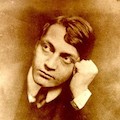The Drama of Historical Materialism: Difference between revisions
No edit summary |
No edit summary |
||
| Line 1: | Line 1: | ||
{{Hungarian into English}} | {{Hungarian into English}} | ||
Bernard Shaw is not a Marxist. Jevons’s theory of value fixes the doctrine of | Bernard Shaw is not a Marxist. Jevons’s theory of value fixes the doctrine of pleasure in a system, corresponding to his utilitarian questioning, while Marx’s work-abstraction means nothing to him. He does not understand the theory of class hare. He is socialist, but he does not understand continent theory in part, he partly refuses it. But while he rejects the doctrine, the criticism is all the more consistent with it. He does not, therefore, deny the problem, but without recognizing the material substrate of actual development, it is a utopian necessity and it is also one of the darkest, individual fantasies. This is how his theory is born, the doctrine of the redeemer ''Superman'' (''Übermensch''), who, however, is not born of a new morally fertilized society (which Nietzsche longed for), but a conscious and purposeful organization of the whole to carry out species selection. The Übermensch created by ethical selection replaces Superman’s physiologically determined production as a program. | ||
Articles by M. Beer (''Neue Zeit'') and Ed. Bernstein (''Sozialistische Monatshefte'') deal with the thinking Shaw. However, both make a mistake that becomes fatal in our understanding of Shaw’s dramas: they emerge from the unity of the playwright and the thinker…. Beer allegedly explained its world of thought from Shaw’s plays: but this is only a literary appearance. He really only matured from his dramas as much as he could see through the glasses of Shaw's views and theories. However, this is not much. Because the essence and greatness of his acting is that he does not give theory, does not systematize and does not build, but criticizes. He dissects and describes. And we intact to show that he has created insights with an intuitive blink of an eye that contain a complete refutation of his own thoughts. The conjecture with which he constructed his loose dramatic works was seen in a peculiar way more sharply than the self-conscious analysis with which he constructed his system. | |||
Its work of fiction is completely filled with a critique of today's order. This unit of content stands out from all his writings even with the brittleness that denies the genre. His aphoristic act is just more of a dramatic paradox. But neither this nor his genre. Wilde, the new Merlin, entertains his enthusiasm by sparking the endless and surprising possibilities of colorful and rich judgments in front of him, but at the crucial moment his nervously squeezing pocket is whispered by the magician who whispers, “It’s not a flame, it’s just a fire. It’s all impossible: it’s not true! ” Because the paradox is not a style but an object of Shaw’s art. | |||
== Text Informations == | == Text Informations == | ||
Revision as of 22:11, 28 August 2020
Bernard Shaw is not a Marxist. Jevons’s theory of value fixes the doctrine of pleasure in a system, corresponding to his utilitarian questioning, while Marx’s work-abstraction means nothing to him. He does not understand the theory of class hare. He is socialist, but he does not understand continent theory in part, he partly refuses it. But while he rejects the doctrine, the criticism is all the more consistent with it. He does not, therefore, deny the problem, but without recognizing the material substrate of actual development, it is a utopian necessity and it is also one of the darkest, individual fantasies. This is how his theory is born, the doctrine of the redeemer Superman (Übermensch), who, however, is not born of a new morally fertilized society (which Nietzsche longed for), but a conscious and purposeful organization of the whole to carry out species selection. The Übermensch created by ethical selection replaces Superman’s physiologically determined production as a program.
Articles by M. Beer (Neue Zeit) and Ed. Bernstein (Sozialistische Monatshefte) deal with the thinking Shaw. However, both make a mistake that becomes fatal in our understanding of Shaw’s dramas: they emerge from the unity of the playwright and the thinker…. Beer allegedly explained its world of thought from Shaw’s plays: but this is only a literary appearance. He really only matured from his dramas as much as he could see through the glasses of Shaw's views and theories. However, this is not much. Because the essence and greatness of his acting is that he does not give theory, does not systematize and does not build, but criticizes. He dissects and describes. And we intact to show that he has created insights with an intuitive blink of an eye that contain a complete refutation of his own thoughts. The conjecture with which he constructed his loose dramatic works was seen in a peculiar way more sharply than the self-conscious analysis with which he constructed his system.
Its work of fiction is completely filled with a critique of today's order. This unit of content stands out from all his writings even with the brittleness that denies the genre. His aphoristic act is just more of a dramatic paradox. But neither this nor his genre. Wilde, the new Merlin, entertains his enthusiasm by sparking the endless and surprising possibilities of colorful and rich judgments in front of him, but at the crucial moment his nervously squeezing pocket is whispered by the magician who whispers, “It’s not a flame, it’s just a fire. It’s all impossible: it’s not true! ” Because the paradox is not a style but an object of Shaw’s art.
Text Informations
Reference: 1907a
Original Publication: “A Történelmi materializmus Drámája”, Huszadik Század, vol. 8, n°1, 1907, pp. 66-71
KPA: 01/01
Other Languages:
| Lg | Name |
|---|---|
| DE | |
| FR | « Le drame du matérialisme historique » |

